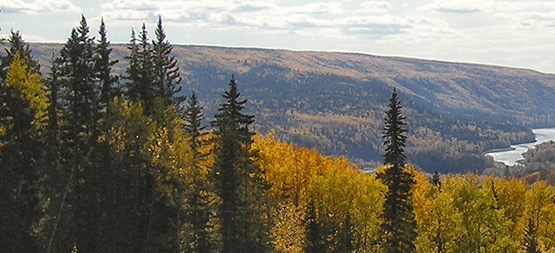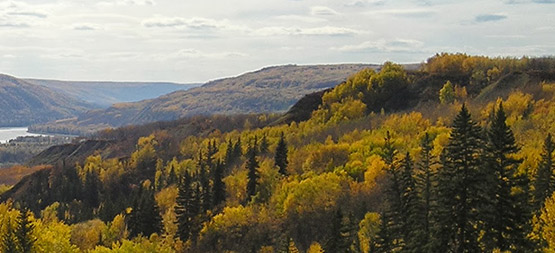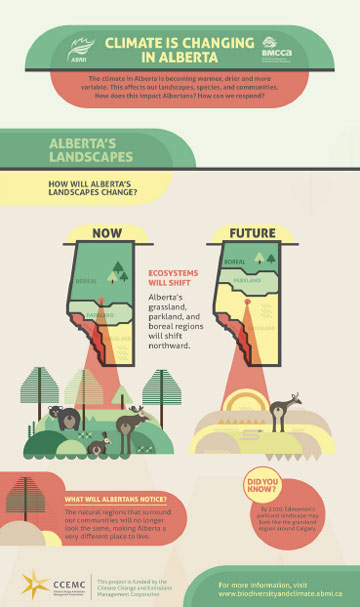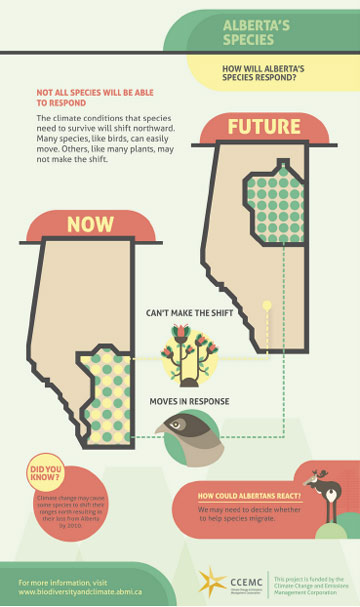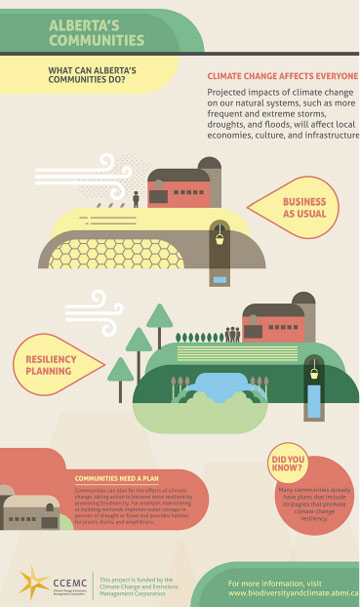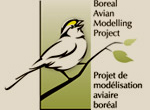Climate Change in Alberta
Alberta’s climate is changing. Over the past century, the mean provincial temperature has increased by 1.4°C, with most of the increase occurring since the 1970s.
By the end of this century, our province will likely see an increase in average temperature of at least 2°C, about equivalent to a shift in temperature from Calgary to Edmonton. Depending on the global climate model and greenhouse gas emissions scenario used to forecast future climate conditions, this temperature increase could be as high as 4-6°C.
Most climate models also project a small increase in precipitation in our province. But because the projected warming will promote moisture loss from soil and vegetation, Alberta is likely to become drier overall, especially in the summer months. Precipitation patterns, the timing and amount of rain and snow, are also predicted to change and extreme weather events, like heavy rain and wind, are likely to become more frequent.

